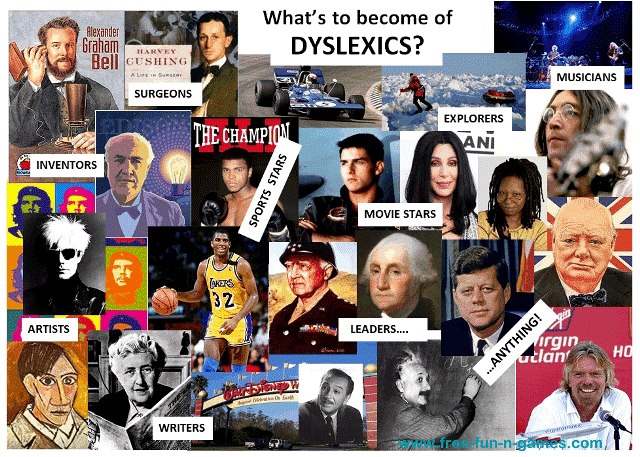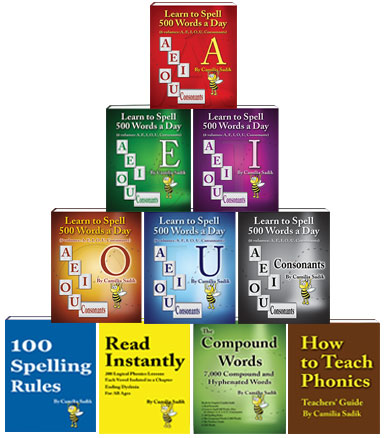Test for Dyslexia Online
15 Major Characteristics shared by Dyslexic Persons
15 Major Characteristics shared by Dyslexic Persons
Characteristics 1-5
Characteristics 6-10

This explains seeing high creativity among dyslexic persons; but, not so much among good spellers, who can memorize without questioning the logic in the thing they are about to memorize. Such good spellers’ attention is disbursed on multiple tasks, unable to focus on only one task to the point of becoming highly creative at it.
Characteristics 11-15
11. Not Visuals, cannot visualize Details Inside Words: Dyslexic persons are not visuals and cannot visualize faces or images; this means they cannot visualize the way a word is spelled. Therefore, dyslexic persons may have difficulties spelling a long word orally. Instead, they may write it down to spell it. In addition, when they speed-read before learning to spell words, they do not have the time to see additional details, such as punctuation and grammar.
12. Writing All Letters in Uppercase: If a person writes all letters in uppercase, then most likely (s)he is dyslexic or has the potential to become dyslexic. However, not all dyslexic persons write their letters in uppercase.
13. Shared Characteristics and General Behavior: Dyslexia manifests itself in the person’s general behavior and characteristics. Understanding dyslexia makes it is easy to tell if a person is dyslexic or if a child might become dyslexic.
14. Being a Logical Learner is Hereditary but not Being Dyslexic: Dyslexic persons are logical learners and being a logical learner is hereditary but not being dyslexic. If they were born into a language that has a single letter to spell a sound every time that sound is written, logical learners would not have dyslexia in that language.
Conclusion
This test for dyslexia online reveals that dyslexic persons can learn and are not learning disabled; they are logical learners that learn logically. They can only focus on one thing or one thought at a time. They are not visual and cannot visualize faces or the way words are spelled. They are perfectionists needing a long time to finish their work; all work to them must be creative or they may not finish it. They tend to be unhappy when disturbed while doing their creative work.
Solutions for Dyslexia in Spelling and Reversing Letters
Lee, a sixth grader, had dyslexia and could not read or spell words. Not only did Lee learn but also he learned in a week. Because he learned so quickly, Lee proved that he was NOT learning disabled. His school never did understand how he learned when prior to that he was sitting in class for six years unable to read. After Lee learned to spell, his teacher Mr. Woods expressed, “Lee seems to be calculating something before he can spell words, and I don’t care how he gets them as long as he keeps spelling them right.”
10 Phonics and Spelling Books or E-books


